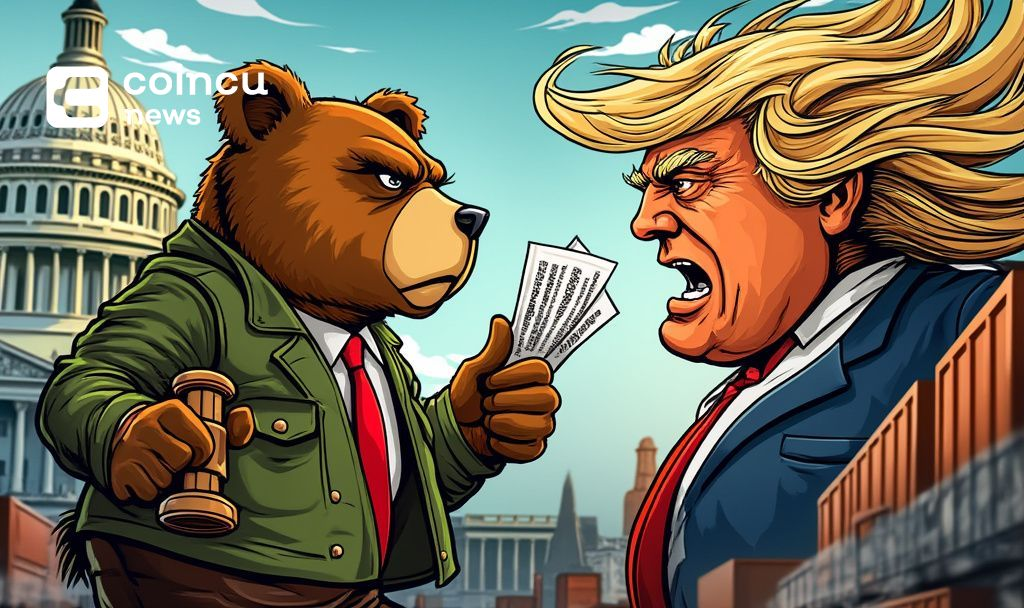- California challenges Trump’s tariffs in Trade Court, citing economic threats.
- Newsom leads the charge, citing harmful impacts on state’s economy.
- Significant legal precedent anticipated from this high-profile case.

In a move impacting trade and state governance, California Governor Gavin Newsom filed a legal challenge against President Trump’s new tariffs, transferring the case to the New York International Trade Court.
The lawsuit, led by Newsom and Attorney General Rob Bonta, highlights damage to California’s economy. The legal battle may set significant precedence on executive power in trade policies.
California’s leadership, spearheaded by Governor Gavin Newsom and Attorney General Rob Bonta, has filed a lawsuit against President Donald Trump’s broad tariff imposition. They argue the President lacks authorization under the International Emergency Economic Powers Act (IEEPA) to enforce such measures. California, regarded as the world’s fifth-largest economy, is particularly vulnerable due to its major export sectors including agriculture and entertainment, with businesses facing heightened import costs and supply chain disruptions.
“No state is poised to lose more than the state of California,” noted Governor Gavin Newsom, emphasizing the disproportionate harm to California’s economy and its leading export sectors.
The imposed tariffs include a universal 10% on all imports and 25% on goods from Mexico and Canada, with exemptions for USMCA-qualified products. This legal challenge underscores the potential impact on consumer prices and inflation. Vendors have already indicated possible price hikes that could translate to broader financial strain on California residents.
Governor Newsom remarked, “No state stands more to lose,” highlighting the significant economic threat. The Trump administration defends the tariffs as necessary for national security, citing illegal immigration and public health crises. The outcome of this case is poised to influence future executive authority on international trade, with widespread implications for how states can challenge federal economic policies.
Potential Legal Precedents and Economic Implications
The use of Emergency Powers for broad tariffs is unprecedented. Trump’s employment of IEEPA in this context diverges starkly from past administrations’ approaches, making this case a pivotal point for trade law.
Experts argue the challenge may test the boundaries of executive power, with potential outcomes mirroring previous landmark cases like Biden v. Nebraska, emphasizing the need for congressional approval for sweeping trade actions. According to legal experts, the Supreme Court’s current composition may lean favorably towards presidential authority, yet the broader implications for state-federal relations and trade law could make it a defining case.
California’s lawsuit underscores the deep economic implications and the intersection of state autonomy with federal policy. While directly impacting trade, the legal precedents to be established could shape future governance, effectively balancing broad federal powers against substantial state economies and interests.























